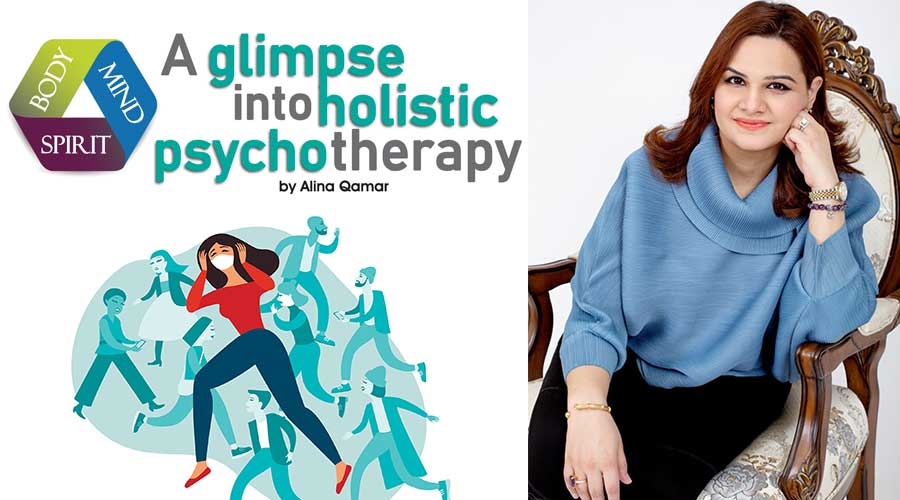Salt therapy – All you need to know
- 24 Feb - 01 Mar, 2024

Holistic has become something of a buzzword over time, but its definition is rather simple. Holistic medicine simply refers to the treatment of the whole person. A holistic treatment approach takes into account all aspects of a person’s health – physical, mental, social, spiritual etc.
Iqra Reza, a holistic mental health therapist, wellness trainer, fashion entrepreneur, and now an author of her book based on the process of healing one’s inner child, Your Magical Journey: Embrace Your Inner Child, joins MAG to answer some of the most commonly asked questions about holistic mental therapy and therapy in general. Read on:
How is holistic psychotherapy different than regular therapy?
Holistic psychotherapy uses traditional methods of psychotherapy along with non-traditional therapies of holistic healing to create a fuller integration between the mind, body and spirit, and to accomplish the deepest level of healing possible.
What is involved in a typical holistic psychotherapy session?
A lot of holistic approaches as well as exercises based on CBT, meditation and other mindfulness practices, breath work, deep sub conscious work through hypnotherapy and regression therapy, tapping technique, Reiki, sound therapy, and aroma therapy.
What do you consider to be the most important traits for a therapist to have?
A therapist should be well qualified and dedicated. It is important for the therapist to have worked on himself and herself and of course, they should maintain the clients’ confidentiality. Building up a good reputation with the client determines the result of a session.
With a pandemic upon us, how has working as a therapist changed during this time? Do you have to do sessions virtually now?
I feel that mental health is given priority now and everyone is seeking help as the access to therapists have become easier because of online sessions. But we do online and onsite sessions both.
Speaking of virtual sessions, what are your thoughts on virtual therapy?
I personally enjoy doing online sessions because the results that my clients experience are as powerful as onsite sessions. The best part is that clients have access to me from all over the world.
Since you're also a fashion designer, how do you think fashion impacts our mental wellbeing?
We should all have a hobby. It's very important to let your creative side shine. When I design clothes I work with colours. Colours are very therapeutic. It is proven that we can heal our mind and body through the vibration of colours. Hence, making fashion an important tool to cultivate positive mental health.
Would you say that our country is dealing with a mental health epidemic? If so, what are some solutions?
Yes, our country is going through a mental health epidemic. Here are a few things that we can do in order to improve our wellbeing: Going for therapy, talking to someone professional really helps. Take breaks from watching, reading, or listening to news, including those on social media. It’s good to be informed, but hearing about the pandemic constantly can be upsetting. Consider limiting news to just a couple times a day and disconnecting from phone, TV, and computer screens for a while. Take care of your body, take deep breaths, stretch, or meditate, try to eat healthy, well-balanced meals, exercise regularly, get plenty of sleep, avoid tobacco, and substance use, continue with routine preventive measures, make time to unwind, try to do some other activities you enjoy, connect with others, talk to people, help the community – it really helps.
What would you consider to be the leading causes of mental health issues today?
Mental health problems can have a wide range of causes. It's likely that for many people there is a complicated combination of factors – although different people may be more deeply affected by certain things than others. For example, the following factors could potentially result in a period of poor mental health:
a) Unaddressed childhood abuse, trauma, or neglect.
b) Social isolation or loneliness.
c) Experiencing discrimination and stigma.
d) Social disadvantage, poverty or debt.
e) Bereavement (losing someone close to you).
f) Severe or long-term stress.
g) Having a long-term physical health condition.
h) Unemployment or losing your job.
COMMENTS